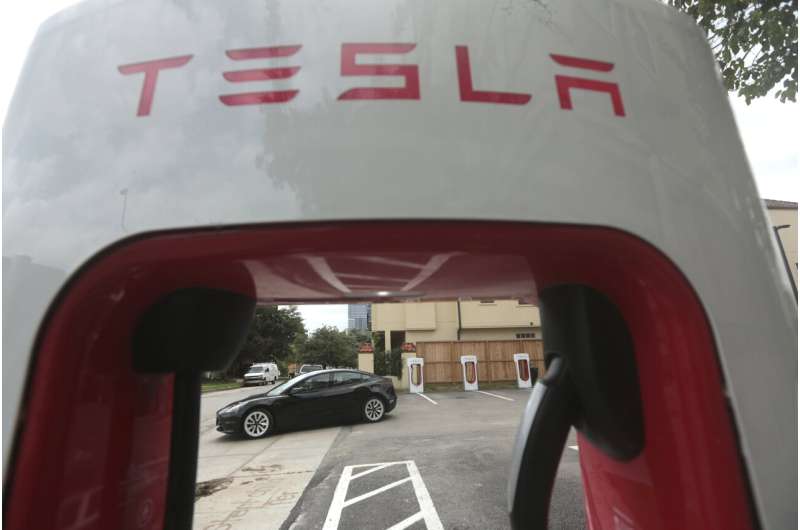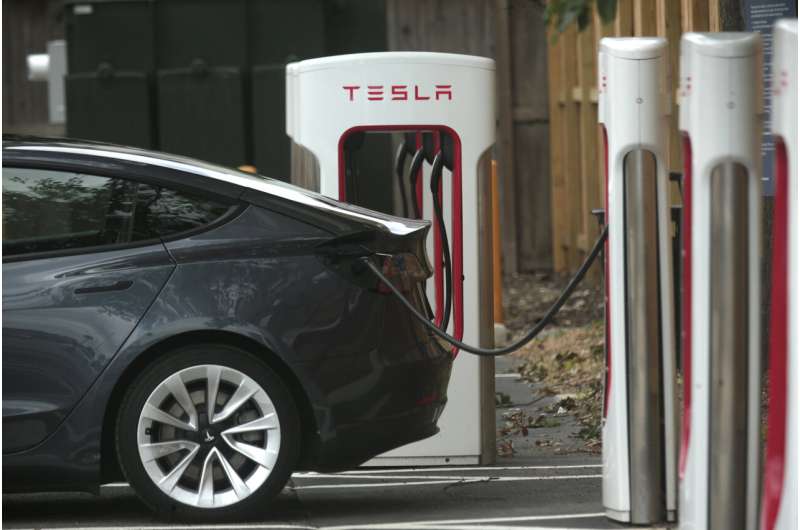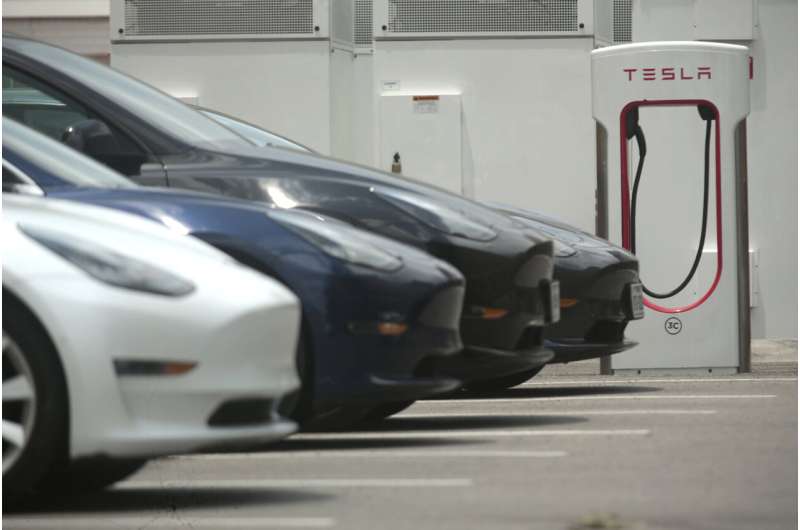
Just before 2 a.m. on a chilly April night in Seattle, a Chevrolet Silverado pickup stopped at an electric vehicle charging station on the edge of a shopping center parking lot.
Two men, one with a light strapped to his head, got out. A security camera recorded them pulling out bolt cutters. One man snipped several charging cables; the other loaded them into the truck. In under 2½ minutes, they were gone.
The scene that night has become part of a troubling pattern across the country: Thieves have been targeting EV charging stations, intent on stealing the cables, which contain copper wiring. The price of copper is near a record high on global markets, which means criminals stand to collect rising sums of cash from selling the material.
The stolen cables often disable entire stations, forcing EV owners on the road to search desperately for a working charger. For the owners, the predicament can be exasperating and stressful.
Broken-down chargers have emerged as the latest obstacle for U.S. automakers in their strenuous effort to convert more Americans to EVs despite widespread public anxiety about a scarcity of charging stations. About 4 in 10 U.S. adults say they believe EVs take too long to charge or don't know of any charging stations nearby.
If even finding a charging station doesn't necessarily mean finding functioning cables, it becomes one more reason for skeptical buyers to stick with traditional gasoline-fueled or hybrid vehicles, at least for now.

America's major automakers have made heavy financial bets that buyers will shift away from combustion engines and embrace EVs as the world faces the worsening consequences of climate change. Accordingly, the companies have poured billions into EVs.
Stellantis envisions 50% of its passenger cars being EVs by the end of 2030. Ford set a target of producing 2 million EVs per year by 2026—about 45% of its global sales—though it has since suspended that goal. General Motors, the most ambitious of the three, has pledged to sell only EV passenger cars by the end of 2035.
Any such timetables, of course, hinge on whether the companies can convince more would-be EV buyers that a charge will always be available when they travel. The rise in cable thefts isn't likely to strengthen the automakers' case.
Two years ago, according to Electrify America, which runs the nation's second-largest network of direct-current fast chargers, a cable might be cut perhaps every six months at one of its 968 charging stations, with 4,400 plugs nationwide. Through May this year, the figure reached 129—four more than in all of 2023. At one Seattle station, cables were cut six times in the past year, said Anthony Lambkin, Electrify America's vice president of operations.
"We're enabling people to get to work, to take their kids to school, get to medical appointments," Lambkin said. "So to have an entire station that's offline is pretty impactful to our customers."
Two other leading EV charging companies—Flo and EVgo—also have reported a rise in thefts. Charging stations in the Seattle area have been a frequent target. Sites in Nevada, California, Arizona, Colorado, Illinois, Oregon, Tennessee, Texas and Pennsylvania have been hit, too.

Stations run by Tesla, which operates the nation's largest fast-charging network, have been struck in Seattle, Oakland and Houston. So far this year, Seattle police have reported seven cases of cable thefts from charging stations, matching the number for all of 2023. Thieves hit Tesla stations four times this year compared with just once last year, the Seattle police said.
© 2024 The Associated Press. All rights reserved. This material may not be published, broadcast, rewritten or redistributed without permission.
Citation: Thefts of charging cables pose yet another obstacle to appeal of electric vehicles (2024, June 12) retrieved 12 June 2024 from https://techxplore.com/news/2024-06-thefts-cables-pose-obstacle-appeal.html
This document is subject to copyright. Apart from any fair dealing for the purpose of private study or research, no part may be reproduced without the written permission. The content is provided for information purposes only.
